
Introduction: History of DEI and Mission Statement
Since its inception in 1968, The 91��Ʒ has a history of diversity, equity and inclusion. Its mission of "Educating Clinicians to Society" has served as an organizing focus leading to the education, training and mentorship of many psychologists over its 50+ year history. The way we address diversity, equity and inclusion has changed over time to meet the needs of the students, and ultimately society. In 2019, under the backdrop of racialized violence and health disparities of the Covid-19 pandemic, our students organized to request additional support and called for the allocation of resources and the creation of the current office. In collaboration with DEI consultant Wendy Siu, Psy.D., the 91��Ʒ Board, staff, faculty and students helped to create the current office within the Counseling Master’s (MA) Program and Clinical Doctor of Psychology (Psy.D.) Programs.
DEI’s mission is similar to that of the 91��Ʒ and is an intentional expansion of the mission of “Educating Clinicians to Society.” As such, DEI’s mission is:
Centering social justice addresses the needs of our communities and considers the impact of unequal power. Power differentials lead to certain groups being marginalized, having unequal access to opportunity, and being underrepresented in institutions of higher learning. This lack of equity is foundational in understanding the dynamics of inclusion and diversity. The Office of Diversity, Equity and Inclusion (DEI) at the 91��Ʒ seeks to challenge barriers to equity in order to bolster diversity and foster an inclusive community.
3 Broad Goals of Diversity, Equity, and Inclusion:
- Diversity - At its core, diversity refers to representation. The 91��Ʒ endeavors to make historically underrepresented groups visible throughout the Institute with ongoing efforts of recruitment and retention of administrators, faculty, staff and students.
- Equity - Equity refers to ensuring access to opportunities, resources and systemic accountability. Equity is sought by providing funded fellowships, targeted mentoring, systemic accountability and collaborative institutional governance that promotes a level playing field for all members of our community.
- Inclusion - Inclusion means cultivating institutional policies that honor the experiences of historically marginalized communities and provide pathways toward change, including representation in advanced leadership. It also means experiencing a sense of belonging, being welcomed, being centered, and feeling respected within the 91��Ʒ community.
Program Objectives of DEI:
To carry-out our mission and meet the aforementioned goals, the Office of DEI has developed 4 objectives.
The 4 Objectives of DEI are…
- To institutionalize DEI through the creation of the office and evolution of its structure, to ensure systemic accountability.
- To support and train historically underrepresented students through the DEI Fellowship Program.
- To educate and train members of our community through Social-Justice Based Initiatives.
- To support and train faculty through Faculty Development Initiatives.
Institutional Structure & Systemic Accountability: Objective #1
In order to implement ongoing DEI efforts with systemic accountability, it is important that this work is institutionalized at the 91��Ʒ. Currently the DEI administrative office consists of a Director and two postgraduate fellows to oversee its functions and implement programs. We practice diversity, equity and inclusion through interfacing with potential students, currently enrolled students, alumni, faculty, staff, and administrators.
DEI works closely with other departments, programs, established committees, and task-forces; including the Mentoring Program, the Diversity Committee and the Anti-Racism Task Force. DEI is involved in faculty governance, administrative leadership, admissions work and plays an important role in institutional strategic planning and accreditation.
DEI is integrated throughout the 91��Ʒ via the…
- Mentoring Program’s Student Affinity Groups- Student-led cultural identity groups.
- Diversity Committee- DEI has membership on this standing committee that is comprised of faculty, staff, and students.
- Faculty Governance- DEI is active in the General Faculty Council, Faculty Retreat, and Full Time Faculty Meetings.
- Administrative leadership committees- DEI is active in both the Clinical Program Executive Committee and the Steering Committee.
- Anti-Racism Task Force- An initiative from the Office of the President (in response to the Black Student Union), DEI is a member of this group made up of administrative leadership.
- Psychologists for Social Responsibility- DEI is supportive of this external professional organization that has a 91��Ʒ chapter.
- Open House Panel- Under the Office of Admissions, DEI presents to potential graduate school applicants.
- Admissions Recruitment- DEI Fellows support the recruitment of a more diverse student body with targeted outreach to BIPOC graduate school applicants.
- Strategic Plan and Accreditation- DEI Directors (from the Master’s & Psy.D. programs) collaborate to operationalize specific strategic plan initiatives that are instrumental to successful accreditation.
- DEI Sponsored Courses- DEI Fellows and Staff lead these courses…
- DEI Summer into Fall Institute- Required course for entering, first-year students.
- In-the-Center- An advanced elective course for students of color.
- Psy.D. Multicultural Curriculum- DEI consults with faculty who teach in this series
- Multicultural Clinical Awareness (MCA)- Required course for first-year students.
- Sociocultural Issues- Required course for second-year students.
- Clinicians to Society- Elective course.
The focus of our efforts is both inward facing (within our community) and outward facing (into our local community). The workload is high and the trajectory is long and although we’ve made strides in DEI, much work remains to be done.
DEI Fellowship Program: Objective #2
The DEI Fellowship Program has an overarching goal to develop clinical leaders who center multicultural identity and experience at the heart of psychological well-being.
The 91��Ʒ DEI Fellowship Program aims to serve the mission of "Educating and Training Clinicians to a More Socially Just Society" through student funding, mentorship, and training.
The program further specifies the 3 tenets of DEI to our Fellows, with the following statement…
- Diversity means we have an intentional focus on BIPOC and other aspects of multicultural intersectionality within the DEI fellowship program.
- Equity means we provide financial support and specialized mentoring to those doing the valued work of multicultural diversity on behalf of the 91��Ʒ.
- Inclusion means we belong at the 91��Ʒ and in this profession. We claim our right for respect and embrace our responsibility to provide ethical, culturally responsive interventions within our professional practice and relationships.
The goals of the DEI Fellowship Program include:
- Goal #1 Recruit Multiculturally Diverse Students- Provide fellowships to reduce financial barriers to access.
- Goal #2 Retain Multiculturally Diverse Students- Provide support such as mentoring focused on professional development steeped in cultural intersectionality, establish a cohort for mutual peer support, and connect Fellows to other 91��Ʒ resources. Fellows attend regular meetings that provide training and supervision.
- Goal #3 Develop Multiculturally Diverse Clinical Leaders- DEI Fellows serve as multicultural ambassadors. They learn to develop and implement social-justice based programs meant to enrich clinical education and training at the 91��Ʒ. Developing such leadership becomes the basis of culturally informed and responsive clinical service for meeting the psychological needs of our culturally diverse communities.
The Fellowship Program has 6 types of Fellows:
Click on the following Fellows to see what we do:
DEI Partners
DEI Partners are invited to collaborate on a social-justice based program of their choice. While they do not participate in the full program, they are involved in aspects of the program that are of interest and from which they may benefit. Partners must be eligible for federally funded work-study as this is the source of their funding.
DEI Junior Fellows
Junior Fellows are entering first-year students who apply for the Fellowship along with their application to the 91��Ʒ Clinical Psy.D. program. They receive individual and small group mentoring and meet with the larger DEI cohort several times a year. They are not required to implement a social-justice based program initiative, but are required to attend some of these events. DEI Junior Fellows receive a scholarship that is not hinged on work-study.
DEI Fellows
DEI Fellows are typically 3rd-4th year students who may or may not have been Junior Fellows. Fellows in this category receive individual, small group and large group mentoring. They are also required to implement social-justice based program initiatives. DEI Fellows are funded with a combination of scholarship and work-study.
DEI Senior Fellows
DEI Senior Fellows have often been previous DEI Fellows who applied to continue within the program, and are able to develop additional leadership skills through mentoring Junior Fellows. Fellows in this category receive individual, small group and large group mentoring and are required to implement social-justice based program initiatives. DEI Senior Fellows must be eligible for federally funded work-study as this is the source of their funding.
DEI APA Minority Fellow
DEI is the programmatic home when one of our 91��Ʒ students is awarded the prestigious APA-Minority Fellowship. DEI provides culturally tailored individual mentoring and the support of the large group DEI cohort. DEI provides a cost-sharing stipend with APA that is in alignment with an amount recommended by NRSA (National Research Service Award.)
Postgraduate Fellows
A DEI Post-Grad Fellowship is specialized training learning to mentor, teach, and develop programs related to DEI. Postgraduate Fellowships are funded through the DEI Office and the level is based on the 3 types of postgraduate fellowship.
- DEI Post-Doc Fellowship- This Fellow has recently earned their doctoral degree in clinical psychology and must accrue post-doctoral hours.
- DEI Pre-Licensure Fellowship- This Fellow has earned their doctoral degree in clinical psychology at least a year ago, has completed their post-doctoral hours, and is working toward licensure.
- DEI Early Career Fellowship- This Fellow is an early career professional who has been licensed within the past 5-7 years and wants to train in DEI as a career shift or focus.
Educate and Train through Social-Justice Based Initiatives:
Objective #3
DEI Fellows are ambassadors-in-training for all things DEI. DEI Fellows and Senior Fellows develop and implement social-justice based program initiatives. They identify what we often refer to as passion projects related to the education and clinical training of those who are seeking to serve underserved communities of color. Fellows may choose to carry on the work of previously developed programs or initiate novel programs. Below is a list of social-justice based programming developed by Fellows and their DEI Mentors.
Various DEI Programs & Activities
- DEI Summer into Fall Institute - This required course for entering students is to support them in gaining foundational psychological concepts undergirding racial justice as they begin their development as clinicians to society. Students will gain an understanding of key concepts, and will begin developing emergent skills of cultural humility, which include self-reflection, interrupting bias, decreasing microaggressions and engaging in challenging dialogue.
- In the Center - This is an elective for students of color to have their professional development experience held at the center as they learn to become culturally informed practitioners. This is in response to the tradition where much clinical “training implicitly and explicitly centers [the experience of] White clinicians.” This quote is from the article “Recommendations for Creating and Teaching a Graduate Psychology Course Exclusively for Black, Indigenous, and People of Color Students” by Kadaba, Chow, and Briscoe-Smith in Teaching of Psychology 2022, Vol. 0(0) 1–8.
- On Being - 3 guiding questions steeped in spirituality - This series is motivated by and imagined from the “On Being” podcast by Krista Tippet. Presenters are all asked the same 3 questions exploring the role of spirituality. In our series, we invite psychologists from diverse spiritual/faith communities to reflect upon the relationship between their faith and their practice of psychology.
- Consulta Clínica - This course, created by DEI Alums Richie Koenig and Claudia Miranda (F17), establishes an intercohort and transtheoretical consult group at the 91��Ʒ so that bi/multilingual students have a space to safely develop their professional identity and their clinical skills in Spanish. Consulta Clínica aims to privilege interdependent Latinx clinical culture and enhance the quality of care that students' patients receive. The course meets weekly and is supervised by Dr. Ureño and led by Belén Mora-Navarro (F19), Priscilla Martin (F20), and Guadalupe Espinoza (F20).
- Latinx Mental Health Series - This series explores treatment issues for diverse clients of the Latinx community and seeks to increase cultural awareness of mental health providers serving the Latinx community. It is open to anyone within the 91��Ʒ community to attend.
- DEI Newsletter - Click to read our newsletter and learn more about our work.
Faculty Development: Objective #4
DEI aims to support faculty development by providing CE training and programs in diversity, equity, and inclusion, consultation to increase representation and diversity in course syllabi, relational consultation, and supporting new and returning faculty in acculturating to a shifting cultural landscape. A landscape that is dynamic in its response to the needs of a growing culturally diverse community. Additionally, faculty affinity groups such as The Black Faculty Meet-Up Group and a faculty arm of the White Privilege and Accountability Group provide another layer of support.
DEI provides classroom support through strengthening and updating curricula through:
- Syllabi review
- Literature search
- Consultation groups for faculty
- Classroom observation
- Access to speakers, trainings, and videos etc.
Who are we?
It's time to meet the DEI Family!!!
DEI Staff
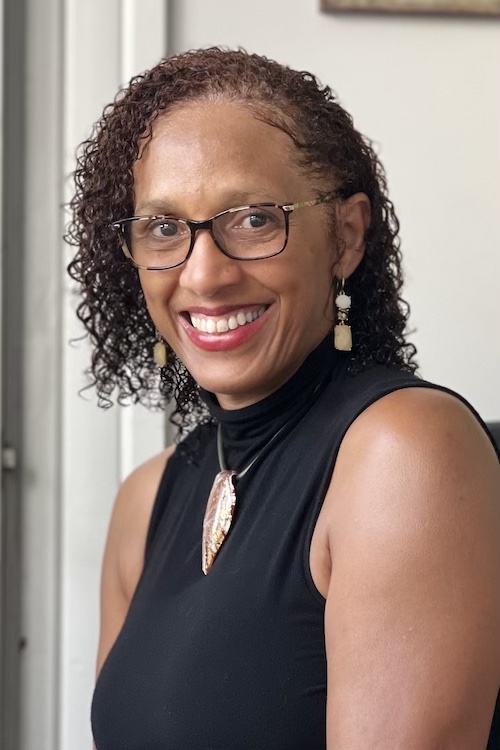 Dr. Veronique Thompson (she/her/hers)
Dr. Veronique Thompson (she/her/hers)
DEI Director, Clinical (PsyD) Program
Dr. Veronique Thompson is a licensed clinical psychologist, tenured faculty member of the 91��Ʒ and director of clinical training at Carl B. Metoyer Center for Family Counseling in East Oakland. She received her BA in psychology from Spelman College in Atlanta and her Ph.D. from U.C., Berkeley. Her advanced professional training has been in Narrative Therapy and Social Justice Therapy.
Dr. Thompson is originally from the East Coast. She was raised in a working-class, large extended family, in Boston. She is first-generation college, an avid dancer, a yoga enthusiast, and a plant-based eater. She lives in Oakland, in a multigenerational family home with her mother, sister, son, nephew and two Russian Blue cats.
Her core professional interests lie within African-American and other communities of color, helping to increase positive mental health and to train others who share this commitment. She brings this same commitment to her work in the office of DEI, helping the 91��Ʒ to fulfill its mission of “Educating Clinicians to [a more socially just] Society.”
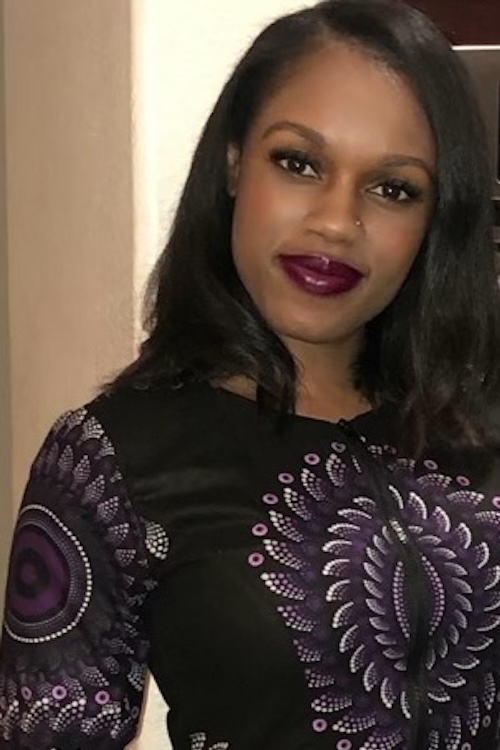 Dr. Karen Egu
Dr. Karen Egu
Karen Egu, Psy.D. is a licensed clinical psychologist. She earned her BS degree in neuroscience from the University of California, Riverside and her Psy.D. from the 91��Ʒ. Her professional training has been in both inpatient and outpatient settings, working with populations across the lifespan.
Dr. Egu's clinical interests are steeped in anxiety disorders, trauma, psychotic spectrum disorders, and psychological assessments from an integrated and culturally informed approach.
Dr. Egu understands the importance of representation, mentorship, and advocacy on behalf of marginalized communities. This value system informs her commitment and work within the DEI Office.
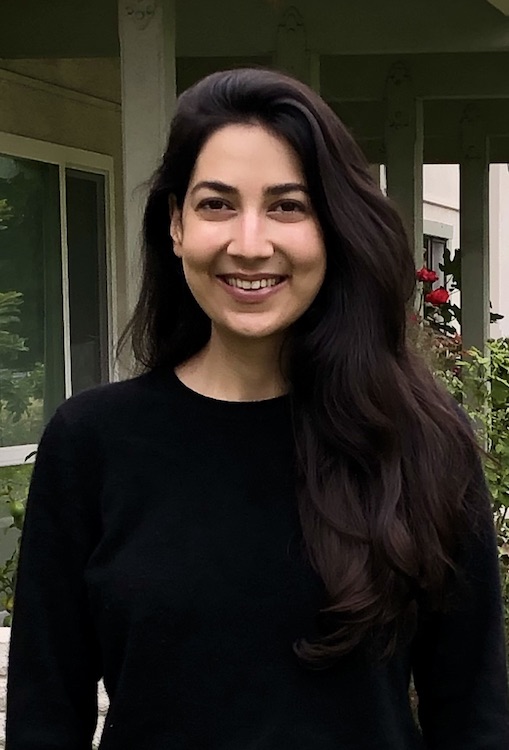 Dr. Marriam Zarabi (she/her)
Dr. Marriam Zarabi (she/her)
Marriam Zarabi, Psy.D., served as a DEI Fellow while she was a student at the 91��Ʒ. Her clinical training includes outpatient settings and community mental health clinics. She enjoys translating Western clinical interventions to support diverse populations and in pursuit of culturally responsive care. Farsi is her first language. She cherishes the opportunity to collaboratively broaden the nature and scope of working as a Clinician to Society.
DEI Senior Fellows
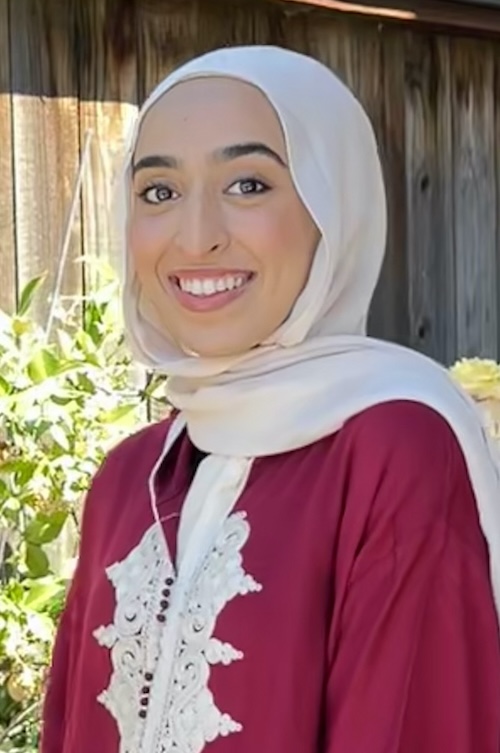 Alisha Ahmed
Alisha Ahmed
Alisha Ahmed is a fourth-year clinical psychology doctoral student at the 91��Ʒ in Berkeley, CA. She is a first-generation Muslim Pakistani American who is deeply committed to facilitating holistic healing for individuals from marginalized communities such as her own. Her passion is rooted in empowering and uplifting the diverse populations she serves. Alisha holds a B.A. in Liberal Arts and Islamic Studies from Zaytuna College and a Diploma in Islamic Psychology from Cambridge Muslim College, and she previously interned at the Stanford Muslim Mental Health and Islamic Psychology Lab.
Her clinical training has included working with clients in university counseling, community mental health, and acute inpatient psychiatric hospital settings using various therapeutic modalities including narrative, psychodynamic, DBT, integrative and group therapy. At the 91��Ʒ, Alisha served as her cohort’s representative on the Clinical Program Executive Committee, co-led the 2023 Multicultural Symposium titled “Decolonizing Psychology,” and currently co-leads the SWANA-M student group. She is excited to continue serving DEI as a Senior Fellow!
Outside of her academic and clinical work, Alisha enjoys traveling, being in nature, running her small business, eating chocolate chip cookies, and spending time with loved ones—preferably all in the same day.
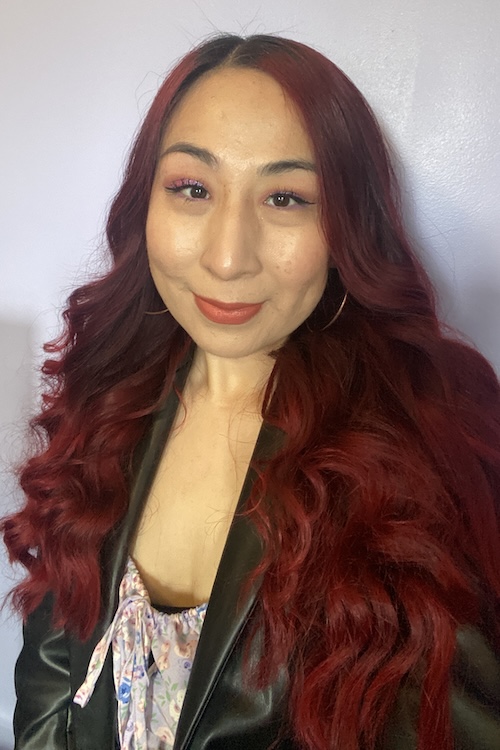 Ali Manrique (she/her)
Ali Manrique (she/her)
Ali Manrique (she/her) is a fourth year doctoral student at the 91��Ʒ. She is a first-generation student and identifies as a proud bilingual Peruana. She received her B.A. in Psychology and minor in Education from UC Berkeley in 2018. After graduating UC Berkeley, she had experience working as a youth case manager, a mental health counselor, and an IEP legal advocate for high schools in Oakland. During her doctoral education journey at the 91��Ʒ, she has worked with primarily first-generation BIPOC students in middle school, high school, and college settings. She is currently a co-facilitator for Consulta Clinica, a Spanish clinical consultation space supporting PsyD students interested in serving Spanish-speaking communities. She is also a graduate mentor for the Psychology Internship Program, supporting BIPOC first-generation college-bound high schoolers who are interested in Psychology. Ali is committed to helping BIPOC communities have access to equitable, culturally inclusive mental health services and demystify higher education for first-generation youth. Outside her clinical work, she enjoys dancing, going to concerts, watching the same comfort shows, and being in community with her loved ones.
DEI Fellows
 Ryan Lee (he/they)
Ryan Lee (he/they)
Ryan Lee (he/they) is a third-year PsyD student at the 91��Ʒ with a Bachelor’s in Psychology and Asian American and Asian Diasporic Studies from UC Berkeley. As a queer, second-generation Chinese American man raised in San Francisco, Ryan approaches his work not only from a clinical lens but as someone deeply rooted in the very communities he serves. To him, San Francisco is not just where he trains—it is home, where he has witnessed the impacts of gentrification, displacement, and the criminalization of marginalized identities on the city’s historic enclaves of resilience. He views his role as a therapist as a continuation of his community’s legacy: a commitment to advocating for marginalized communities and fostering radical healing and empowerment.
In his clinical training, Ryan has provided care to international students at Diablo Valley College, LGBTQ+ and HIV-impacted individuals at UCSF Alliance Health Project, and will soon serve people with neurodevelopmental concerns in San Francisco’s Tenderloin District at Hyde Street Community Services.
Beyond his training, Ryan serves as the Student Representative for the California Psychological Association’s Division VII (Diversity and Social Justice) and the Division of LGBTQQ within the Asian American Psychological Association. Outside of psychology, he enjoys weightlifting, dragon boat and outrigger canoeing, Lego building, and attending music festivals and concerts!
 Grace Liu
Grace Liu
Grace Liu is a fourth-year doctoral student at the 91��Ʒ and received the American Psychological Association Minority Fellowship. She graduated from the University of Oregon with a B.S. double major in biology and psychology where she also worked in a research lab that examined the effects of DBT on mothers with Borderline Personality Disorder. Grace works primarily with BIPOC communities and provides trauma-informed care to various populations across the lifespan. Her previous clinical training includes the School-Based Collaboration, Berkeley CBT Clinic, Sutter Alta Bates Inpatient Hospital, and the 91��Ʒ Assessment Services Clinic. Currently, Grace is a registered psychological associate for a group private practice in Oakland, CA. Grace has a focus area in health psychology at the 91��Ʒ. Her interests include behavioral medicine, decreasing the mental health stigma in Asian communities, and trauma processing. Additionally, her dissertation examines the associations between acculturative stress and health-related quality of life in immigrants with autoimmune diseases.
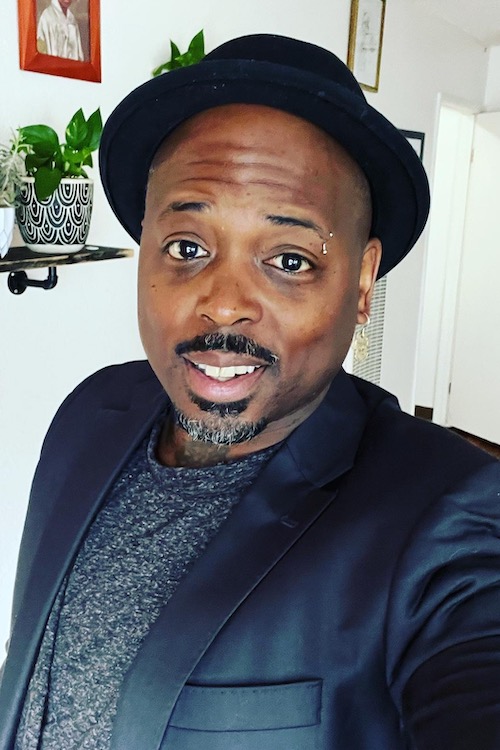 Shah Shepherd
Shah Shepherd
Shah Shepherd is a third-year PsyD student at The 91��Ʒ, where he also serves as a Teaching Assistant for the Assessment Series. He has lived in the Bay Area for over a decade. Shah earned an AA-T in Psychology and an AA in Behavioral Health Sciences from City College of San Francisco before transferring to UC San Diego, where he completed his BA in Psychology with a minor in Human Developmental Sciences.
His clinical experience includes supporting college students with a range of mental health concerns through the 91��Ʒ College Wellness Program and working with individuals with acute dual diagnoses at Sutter Alta Bates Herrick Inpatient Psychiatric Hospital. Currently, Shah provides treatment for individuals navigating substance use and co-occurring diagnoses at HealthRIGHT 360 and conducts collaborative psychological assessments at The 91��Ʒ Assessment Clinic.
Shah’s professional interests center on the experiences of underrepresented communities and the development of integrative approaches to healing and coping. He is particularly passionate about working with individuals affected by trauma, PTSD, and personality disorders.
In addition to his clinical and academic roles, Shah serves as Chair of The 91��Ʒ’s Black Student Union and as a co-leader of the Fireside Chats series. Outside of his professional commitments, he enjoys mentoring, traveling, volunteering, cooking, styling hair, composing poetry, and tending to his plants.
 Yesica Mendez Weeks
Yesica Mendez Weeks
Yesica Mendez Weeks is a third-year doctoral student at The 91��Ʒ. She is a Mexican immigrant who earned her Associate's degree in Psychology from Los Medanos College, Bachelor's degree in Psychology from UC Berkeley, and Master's in Industrial-Organizational Psychology from Adler University. In her first two years of the program, she trained at the 91��Ʒ's Older Adult Clinic and La Concordia Wellness Center, providing bilingual (English and Spanish) trauma-informed care in individual, group, and couples/family therapy to patients across the lifespan. She is currently completing her practicum at Contra Costa County Behavioral Services on the Consultation and Assessment Team (CAT), working with children and families. Her dissertation research focuses on father-daughter relationships, with particular attention to resilience and attachment outcomes.
Yesica’s clinical interests include child and family treatment, trauma, and culturally attuned care, and she is deeply committed to serving historically marginalized communities. She aspires to continue developing expertise in assessment and family systems approaches while contributing to accessible, community-based mental health care. Yesica is also a mother of three young children, and when she is not studying or doing clinical work, she is most often chasing after them at the park.
DEI Partners
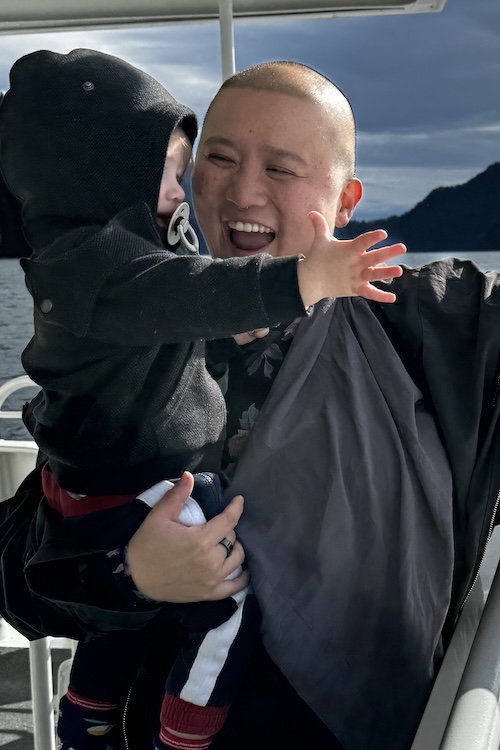 Joy Ding (they/them)
Joy Ding (they/them)
Joy Ding is a second-year PsyD student at the 91��Ʒ, transitioning into the field of psychology after 14 years in technology and the arts. While working as a product manager at Google and Twitter, they often struggled with the ethical implications of their work, most intensely when leading Twitter’s misinformation team after the 2016 elections. The personal mental health challenges that Joy faced during this period led them to step away from technology and spend several years focusing on their art practice and working at a non-profit arts organization. Over time, reflecting on their own mental health journey solidified their commitment to pursuing a career in psychology and offering the same kind of transformative care they had received to others.
Born in Shanghai and living in Canada, the U.S, and Japan throughout their childhood and early adulthood gave Joy an embodied appreciation for cultural diversity. As a non-binary person, they are deeply committed to improving access to gender-affirming care, driven by their own experiences navigating mental health systems that often overlook queer and trans communities.
This year, Joy is excited about their practicum placement at Through the Looking Glass (TLG), where they will support families with disabilities. As a new parent of two young kids, they feel a strong connection to creating more collaborative and inclusive care models for individuals and families facing severe mental health challenges.
 Carsten Fisher
Carsten Fisher
Carsten Fisher is a friend, sibling, lover, forever-student, behaviorist by training, psychedelic researcher and educator, and a clinical psychologist in-training. Born in South Africa and raised in the South, Carsten’s professional journey of holding the liminal space between finding belonging and liberation, is a reflection of their personal journey through young adulthood. Their commitment to and expression of liminality weaves through their study of psychedelic-assisted healing modalities like MDMA-assisted psychotherapy and ketamine-assisted psychotherapy, and their role as a mentor to psychedelic-assisted therapy providers. Carsten’s personal and professional passion is grounded in the service of Black & non-Black persons of color, and LGBTQIA+ communities - prioritizing accessibility, equity, and community-centered liberation practices, through individual work and group processes. In his spare time, Carsten enjoys playing tennis, learning music, studying philosophy, reading fantasy novels, and spending time with friends and family.
 Cristina Schessler De la Garza (she/her)
Cristina Schessler De la Garza (she/her)
Cris is a second-year graduate student pursuing her PsyD at the 91��Ʒ and completed her first year of clinical training at the 91��Ʒ Recovery Clinic. From her time working for Doctors Without Borders in Mexico, she developed a passion for serving refugees and people who have endured the migratory route and hopes to be able to support immigrants in the community through psychological services. With eight years of experience working in the education field in various roles including educator and elementary school counselor, and a masters in school counseling, she is excited to be transitioning into clinical work. Cristina’s current practicum placement is at the 91��Ʒ CBT Clinic where she is committed to grow in her skills and knowledge to support the community. Apart from her clinical work, Cris spends her life connecting with her friends and family through movie nights, dancing, exercise, game nights, and any other opportunity to bring her community together.
 Maya Kaplan (they/them)
Maya Kaplan (they/them)
Maya is a third-year doctoral student at the 91��Ʒ and is ecstatic to continue co-facilitating the Consulta Clínica elective in the upcoming Winter and Spring trimesters. They hold a BA in Psychology from UC Berkeley and an MS in Education from Johns Hopkins University. Maya completed their first-year practicum with College Wellness, their second-year practicum at the 91��Ʒ Clinic, and will be completing their third-year practicum at La Familia, working in the re-entry program with individuals who have past experience with the criminal justice system. They are deeply committed to abolitionist anticapitalist work, which they consider a core value in both their personal and professional life. Prior to doctoral training, Maya taught in urban schools. They are passionate about expanding their therapeutic practice to Spanish-speaking populations, with a specific interest in serving Latinx individuals impacted by the carceral system. Their dissertation focuses on neurodivergent pet grief, in honor of their beloved Mr. Beans. In their free time, Maya enjoys going to the movies, attending theater performances and concerts, and spending time with friends.
DEI Junior Fellows
 Snigdha Aedma
Snigdha Aedma
Snigdha is a first-generation Indian‑American from Los Angeles and a first‑year doctoral student at the 91��Ʒ. She earned her BA in Behavioral Neuroscience from the University of San Diego, with double minors in Ethnic Studies and Sociology.
Her work facilitating healing circles and delivering culturally centered psychoeducation to multicultural and marginalized communities in San Diego ignited her commitment to uplifting the narratives and voices of migrant communities and BIWOC. These experiences, along with her research on holistic, culturally responsive mental health through Ethnic Studies and Neuroscience, led to a deep interest in how gendered and racialized oppression translates into biological and epigenetic trauma within immigrant communities. Snigdha is dedicated to embedding decolonial frameworks, trauma‑informed care, and reciprocal, person‑centered practices into clinical, assessment, and research settings, centering cultural lived experiences and social justice in individuals’ healing journeys.
This year, she is excited for her practicum placement at the 91��Ʒ Recovery Clinic (WIRC), supporting individuals managing co‑occurring substance use and mental health challenges. She brings an intersectional lens to her work, dedicated to establishing collaborative, reciprocal, and inclusive therapeutic spaces. In her free time, Snigdha enjoys reading, fashion and makeup, kickboxing, being near water, and spending quality time with family and friends.
 Supriya Chang
Supriya Chang
Supriya is a first-year doctoral student at the 91��Ʒ. As a queer Indian-Korean woman, Supriya's passion for clinical psychology is deeply rooted in a desire for inclusive and accessible mental health care. She is a graduate of Amherst College, where she completed her undergraduate studies in Psychology and Spanish. During undergrad, Supriya also spent two semesters abroad, one in Madrid, Spain, and another in Seoul, South Korea. Both experiences expanded her cultural competence, curiosity, and adaptability—traits that Supriya hopes to apply to her work as a psychologist. In the future, Supriya aspires to work with minoritized communities, particularly immigrants, multiracial individuals, and Spanish-speaking clients. This year, Supriya is working at the 91��Ʒ's CBT clinic. In her free time, Supriya loves to scrapbook, cuddle with her cat, thrift, go on leisurely hikes, play squash, and travel the world.
 Alex Fernandez
Alex Fernandez
Alex Fernandez immigrated to California from Michoacán, Mexico at the age of eight. A first-generation college student, he is currently pursuing his Doctorate in Clinical Psychology (PsyD) at the 91��Ʒ. In his first-year practicum, he will be training at the 91��Ʒ’s Cognitive Behavioral Therapy (CBT) Clinic. Alex is a Certified Alcohol and Drug Counselor (CADC-III) and holds a BA in Psychology from UC Santa Cruz. With nearly a decade of experience, he has supported individuals with co-occurring disorders across a range of clinical settings, including medication-assisted treatment (MAT) programs, outpatient and inpatient psychiatric facilities, and youth services. His work has focused on crisis stabilization, substance use treatment, and comprehensive care for diverse populations. He is passionate about providing culturally responsive care to individuals in marginalized and underserved communities.
APA Minority Fellows
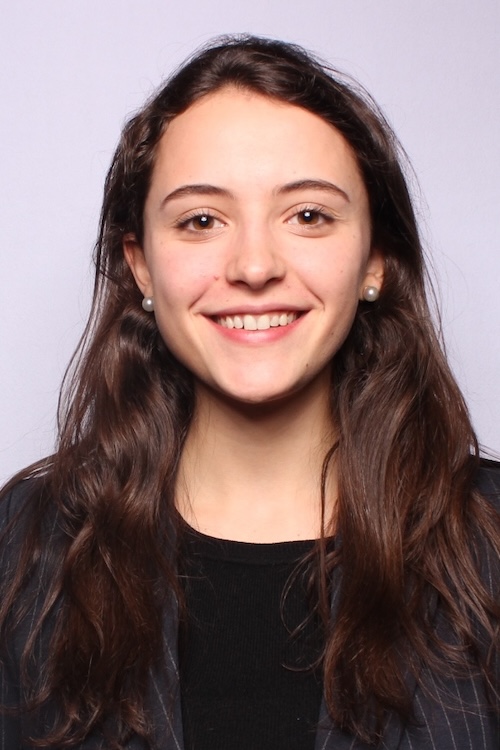 Mariana Rodriguez
Mariana Rodriguez
Mariana is a fourth-year doctoral candidate at The 91��Ʒ and a current APA Minority Fellow. She is a Venezuelan immigrant and graduated from Tufts University with a BS in psychology. In her first two years at the 91��Ʒ, she worked at the 91��Ʒ Recovery Clinic (WIRC) and the 91��Ʒ Psychodynamic Clinic (WIC) doing individual, couples, and group therapy with adults. In her third year, she worked at two different practicums. Initially at the Pediatric Multidisciplinary Assessment Clinic (MDAC) at San Francisco General Hospital, she conducted assessments for underserved children with a range of neuropsychological and developmental conditions including ASD and ADHD. Later at Life Learning Academy, she provided individual therapy to at-risk adolescents and young adults at a public charter high school. Now during her fourth year, Mariana is returning to the WIC as an advanced trainee and mentor for other students.
Her dissertation research is focused on examining the relationship between the quality of parent-child relationships on children’s levels of psychological resilience, specifically in Latinx immigrants with trauma. For this research, she won the Alameda County Psychological Association Award recognizing exceptional scholarship with potential to advance multiculturalism. Mariana has a broad range of interests including psychoanalytic theory, complex trauma, child psychology, immigration, assessment, and forensics, and seeks to work relationally with multicultural patients.
 Ivy Xu
Ivy Xu
Ivy Xu is a third-year doctoral student at The 91��Ʒ. She is a recipient of the APA’s Interdisciplinary Minority Fellowship Award for 2025-2026. A first-generation college graduate and Chinese-American immigrant, Ivy earned her B.A. in Justice and Law from American University, where she graduated summa cum laude. After seeing a need for culturally competent mental health care within Asian American communities, Ivy pivoted her career to psychology to help bridge that gap. Her clinical interests include complex trauma and PTSD, severe mental illness, psychological assessment, and minority mental health. Ivy is deeply committed to destigmatizing mental health and expanding access to culturally responsive care for AAPI communities. Her therapeutic approach is rooted in evidence-based, trauma-informed, and relational frameworks. She is currently a psychological trainee at Alameda Health Systems and the San Francisco VA Medical Center.
 Kaya Zamil
Kaya Zamil
Kaya Zamil is a third-year doctoral student at the 91��Ʒ. She received the APA Minority Fellowship and aims to make therapy services more affordable and accessible by working with communities of color in community clinics. Kaya graduated from Wesleyan University with a B.A. in Psychology, and worked at McLean Hospital in their Geriatric Department, studying Alzheimer's, dementia, bipolar disorder, anxiety, and depression. She aims to provide culturally-informed care to children, adolescents, and young adults. Kaya's interests include food and nutrition in mental health, culturally-specific presentations of disorders, cultural stigmas within Asian communities, and providing trauma-informed care. She is currently training at Kaiser Permanente, where she works with children and families, and conducts ADHD assessments. Kaya's dissertation focuses on how cultural norms in South Asian populations influence food attitudes and disordered eating.
Applying for a DEI Fellowship:
If you are interested in applying for a DEI Fellowship…
- If you are applying to the 91��Ʒ as an entering student and would also like to apply for a DEI Junior Fellowship, complete the supplemental prompt in the admissions application by the January 5th deadline.
- DEI Fellowship applications for currently enrolled 91��Ʒ students will be available in April 2024 (you can also contact the Office of DEI for more information deioffice@wi.edu).
- If you would like to apply for a DEI Postgraduate Fellowship, contact the Director of DEI at vlthompson@wi.edu.
